explore
Freshwater Mussels
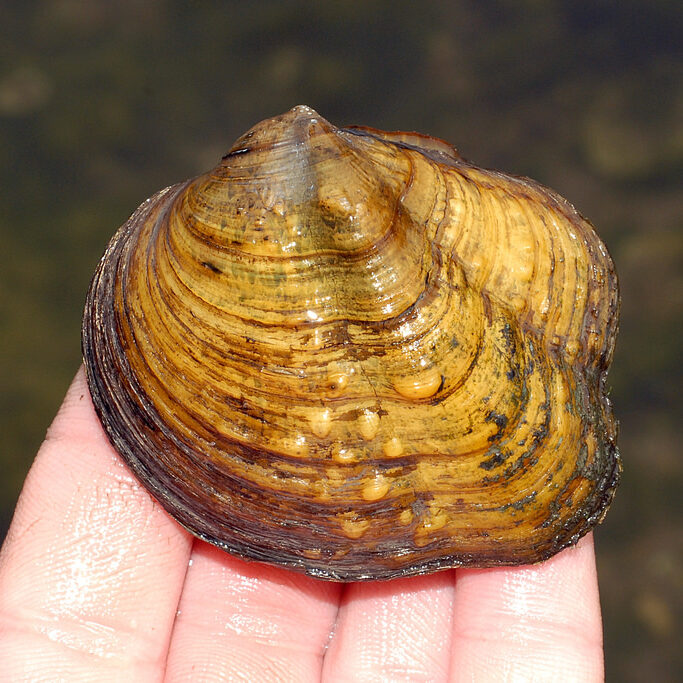
Water Relationships
Freshwater mussels spend their entire life cycle in water, and have developed close relationships with water dwelling organisms (mostly fish). They slowly move along the bottoms of waterbeds and filter-feed, cleaning the water of bacteria, algae, and other small particles as they go. After digesting their food, their waste is excreted and provides important nutrients for other animals in the ecosystem. They rely on water to keep them alive, and since they play such an important role in freshwater ecosystems, keeping them alive is necessary to keep fresh waters healthy!
Riverbank and Shoreline Relationships
Mussels rely on certain depths of substrate (the material of the water bed on which mussels live, like sand or gravel) to go about their daily life and feed. This means that they tend to live near the shore of freshwater streams, lakes, and rivers. If levels of sediment on these water beds become too deep, they will lose mobility and be unable to move around and breathe well. These creatures need a healthy and non-eroded shoreline to be able to survive.
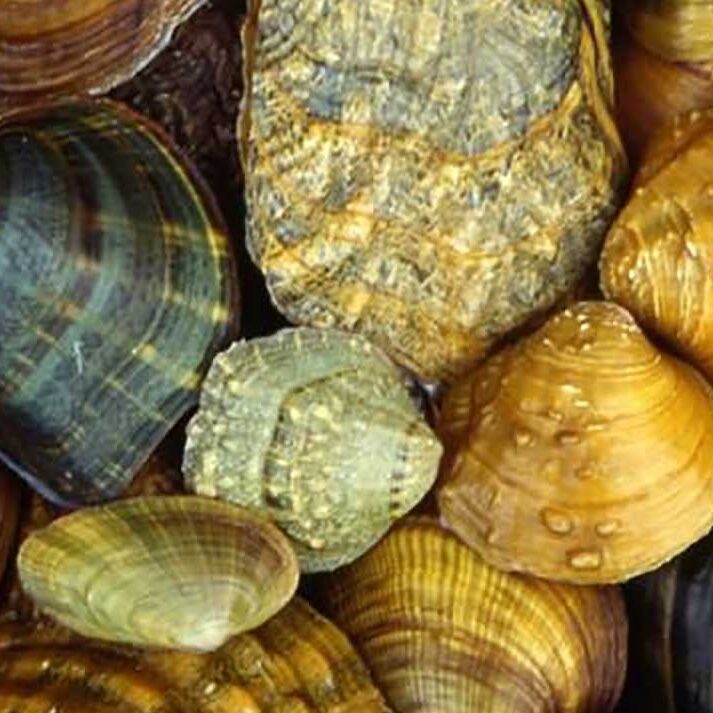
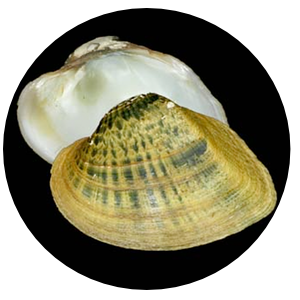
Plant Relationships
Freshwater mussels are filter feeders. That means they draw in water and filter small particles of organic matter, including algae and decaying plant particles, out of the water to eat.
Relationships with Other Animals
Without fish, freshwater mussels wouldn’t exist! As larvae, mussels will attach to a host fish in order to survive. While attached, the larval mussels may travel with the fish many miles away to a new fresh water home, something the slow-moving mussels could never do on their own.
Mussels help other organisms by purifying water and producing nutrient-rich waste. They eat plankton, bacteria, and plant matter, and are a source of food for many other animals like otters, water birds, fish, and raccoons.
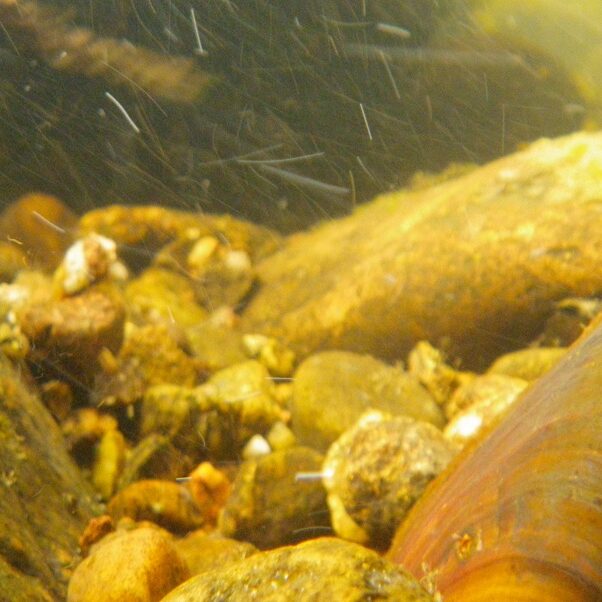
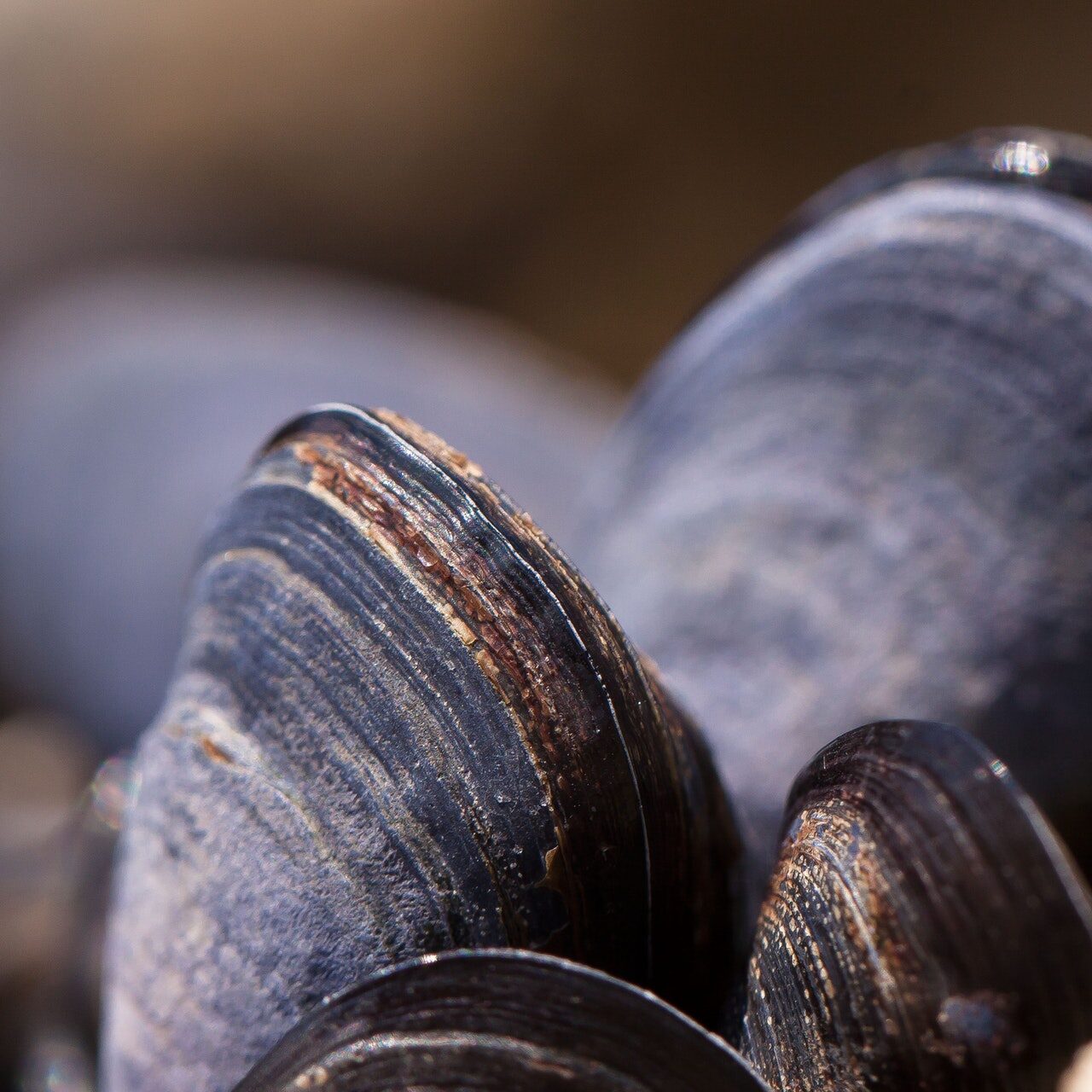
Weather Relationships
Mussels will bury themselves deeper in their substrate during colder periods to stay warm. They are particularly sensitive to changes in the water level, so periods of drought are often followed by declines in mussel populations.